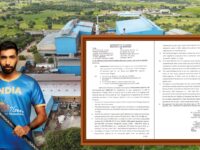Quad: Quad members meet in New Delhi, assure it is not a military grouping or meant to counter China | India News

The meeting, presided over by external affairs minister S Jaishankar, was held on the sidelines of the eighth edition of the Raisina Dialogue and came against the backdrop of growing global concerns over increasing Chinese assertiveness in the strategically-vital Indo-Pacific region.
It was attended by US Secretary of State Antony Blinken, his Japanese counterpart Yoshimasa Hayashi and Australia’s Penny Wong.
While reiterating that the Quad was not aimed at countering China, the members reaffirmed the grouping’s commitment for a free and open Indo-Pacific and said it strongly supports the rule of law, sovereignty, territorial integrity and peaceful settlement of disputes, in comments seen as an oblique message to Beijing.
Here are the other key developments:
India highlights resilient supply chain, digital challenge, connectivity
External affairs minister Jaishankar on Friday highlighted three big issues that the Quad and the World needs to address: “Resilient supply chain, digital challenge and connectivity”.
“Three big issues that Quad and the world needs to address and I think Quad can address and can make a difference. First, more reliable and resilient supply chain, second digital challenge of trust and transparency and third connectivity. I expect these to be a greater part of our agenda,” said Jaishankar.
He also said that new things came out during Quad deliberations. “New things which came out today, we agreed on a counter-terrorism working group and SoPs for the Humanitarian Assistance and Disaster Relief (HADR) initiative. All four nations supported the reform of the UN,” said the minister.
Quad and The Beatles?
Japanese foreign minister Yoshimasa Hayashi sought to draw an analogy between legendary English rock band The Beatles with the Quad referring to the grouping of Japan, Australia, the US and India as more of a “soft Beatles” where “every member may release a solo album of their own”.
Is the Quad group like the Beatles? Japanese Foreign Minister explains
Speaking at a panel discussion at the Raisina Dialogue 2023 where all Quad foreign ministers participated, Hayashi said, “This is not a band like the Beatles where everyone jointly releases an album every few years as a rock band … The members are fixed and they always play together for 10 years. This is more like a soft group within the Beatles, and like Paul McCartney may release a solo of their own.”
He also said that the Quad group is not a military group and they don’t try to exclude anybody including China. “We don’t try to exclude anybody (including China). As long as China abides by international norms and laws then there are no conflicting issues between China and the Quad,” the Japanese FM asserted.
The joint statement issued after the Quad ministerial meeting also stated that the grouping strongly opposes any “unilateral actions that seek to change the status quo or increase tensions” in the South and East China Seas.
Committed to free and open Indo-Pacific: Quad
In a joint statement after the Quad meeting, the ministers reaffirmed the Quad’s “steadfast” commitment to supporting a free and open Indo-Pacific, which is inclusive and resilient.
“We strongly support the principles of freedom, rule of law, sovereignty and territorial integrity, peaceful settlement of disputes without resorting to threat or use of force and freedom of navigation and overflight, and oppose any unilateral attempt to change the status quo, all of which are essential to the peace, stability and prosperity of the Indo-Pacific region and beyond,” the statement said.
The foreign ministers added that the Quad is acting as a “force for regional and global good”, and it will be guided by the priorities of the Indo-Pacific region through its positive and constructive agenda.
The Quad sought support in the region through practical cooperation on contemporary challenges such as health security, climate change and clean energy transition, critical and emerging technologies, infrastructure and connectivity.
‘A convergence of interests’
The Quad ministers vowed to work closely to align and complement the bloc’s agenda with Japan’s presidency of the G7, India’s presidency of the G20 and the United States’ APEC (Asia-Pacific Economic Cooperation) “host year” in 2023.
The four ministers also spoke about the convergence of interests of the Quad member nations. “For us the future is so much in the Indo-Pacific. Our engagement throughout the region, both through the Quad and in other ways, is as comprehensive and as deep as any time I can remember,” Blinken said.
The member nations also addressed the debt crisis, space cooperation, cyber-security, humanitarian assistance and disaster relief (HADR), maritime security and counter-terrorism.
Quad to setup working group on counter-terrorism
The Quad foreign ministers also “unequivocally” condemned terrorism and violent extremism in all its forms and denounced the use of terrorist proxies and financial or military support to terrorist organisations which could be used to launch or plan terrorist attacks, including transnational and cross-border strikes.

Quad announces establishment of Working Group on Counter-Terrorism
It was announced that a Quad working group on counter-terrorism would be established to explore measures to counter new and emerging forms of terrorism, radicalisation and violent extremism.
They reiterated their condemnation of terrorist attacks, including 26/11 Mumbai strikes, which claimed lives of citizens from all Quad countries, and Pathankot attacks.
“We look forward to the working group’s first meeting in the United States in 2023 to continue our discussions on this global issue,” they said in the statement.
‘Russia must be punished for Ukraine war’
Russia cannot be allowed to wage war with impunity, the Quad said in a statement on Friday following a meeting in New Delhi.
The bloc also said that the use, or threat of use, of nuclear weapons in Ukraine was “inadmissible”. Late last month, Russian President Vladimir Putin suspended a landmark nuclear arms control treaty and threatened to resume nuclear tests.

G20 meeting: Antony Blinken and Sergei Lavrov meet for first time since start of Russia-Ukraine war
“If we allow with impunity Russia to do what it’s doing in Ukraine, then that’s a message to would-be aggressors everywhere that they may be able to get away with it too,” Blinken said.
A day earlier, Blinken had met Russian foreign minister Sergei Lavrov for the first time since the conflict in Ukraine began just over a year ago. During the brief encounter, Blinken urged Moscow to end the war and reverse its suspension of the New START nuclear treaty.
China slams meeting
China views the Quad with concern and has referred to the grouping as the “Indo-Pacific NATO” and anti-China.
On Friday, Beijing again criticised the Quad, saying the state-to-state interactions should pursue peace and development and contribute to mutual trust and regional stability rather than exclusivity.
Responding to the Quad’s ‘free and open Indo-Pacific’ statement, Chinese foreign ministry spokesperson Mao Ning said that “countries should do more to contribute to regional mutual trust, peace and regional stability”.
She also reaffirmed Beijing’s oft-repeated opposition to Quad that it is an exclusive bloc aimed at containing China’s rise.
India a critical and great power: Australian FM
Australian foreign minister Penny Wong on Friday lauded India as a “critical and great power” and said the country’s civilisation prowess brought a fresh perspective on dealing with current issues.
“There is no reshaping of the Indo-Pacific without India,” said Wong.
She also explained how Quad can be a complimentary actor in Indo-Pacific. “The complementarity of this configuration with the architecture of the region, I think is demonstrated from the Australian perspective by our geography and by our interest,” said the Australian FM.
“Pacific Islands nations, and countries of the ASEAN region are all aligned with our interest in economic involvement, prosperity, stability and protection of sovereignty,” said Wong.
UNSC reforms
Talking about the reforms in United Nations Security Council, Quad said they reiterated their unwavering support for the UN Charter, including the expansion of permanent and non-permanent seats of the international organisation.
“We concur that the rules-based international order is anchored in international law, including the UN Charter, and the principles of sovereignty, political independence, and territorial integrity of all states. We are committed to cooperating to address attempts to unilaterally subvert the UN and international system, in consultation with our partners and through multilateral and international platforms,” the statement read.
“We reiterate our unwavering support for the UN Charter, including its three pillars, and our steadfast commitment to strengthening the UN and international system through a comprehensive reform agenda, including through expansion in permanent and non-permanent seats of the UN Security Council. In this regard, we commit to active and constructive engagement in the Inter-Governmental Negotiations (IGN) process on Security Council Reforms with an overall objective of making the UN Security Council more effective, representative, and credible,” it added.
What is the Quad?
In November 2017, India, Japan, the US, and Australia gave shape to the long-pending proposal of setting up the Quad to develop a new strategy to keep the critical sea routes in the Indo-Pacific free of any influence.
US President Joe Biden hosted the first-ever summit of the Quad leaders in the virtual format in March 2021 that vowed to strive for an Indo-Pacific region that is free, open, inclusive, anchored by democratic values, and unconstrained by coercion, sending a subtle message to China.
Beijing claims almost all of the 1.3 million square miles of the South China Sea as its sovereign territory. China has been building military bases on artificial islands in the region also claimed by Brunei, Malaysia, the Philippines, Taiwan, and Vietnam.
(With inputs from agencies)
Watch “World and QUAD need to address…” EAM Jaishankar emphasizes three big issues at Raisina Dialogue 2023

Atul Tiwari is a seasoned journalist at Mumbai Times, specializing in city news, culture, and human-interest stories. With a knack for uncovering compelling narratives, Atul brings Mumbai’s vibrant spirit to life through his writing.





